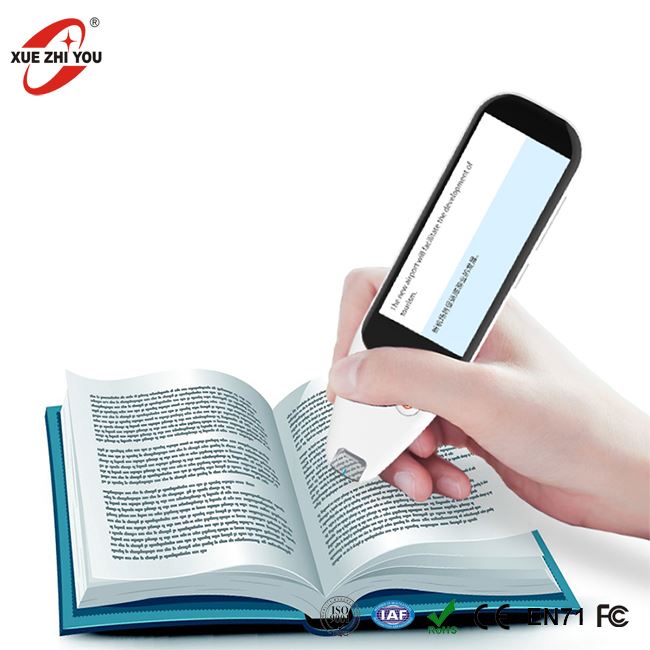Why use a dictionary pen?
There are many tools available for translating and searching vocabulary. They can be traditional paper dictionaries, electronic dictionaries, or mobile phones. So is it worth spending money to buy a dictionary pen? In fact, whether it is worth it or not is a very subjective question, and different people have different standards. So, what is the benefit of using a dictionary pen?

Translation speed
In other words, learning efficiently is to spend all your time on the cutting edge. So of course the faster the word search, the better.
For traditional paper dictionaries, it is necessary to search one by one in alphabetical order. The mobile app and dictionary pen only need one shot or scan, which is obviously more convenient and faster.
To look up a word, it takes about 30 seconds to use the paper dictionary, 15 seconds to the mobile app, and 3 seconds to use the dictionary pen, if you are interested in a test, please trial.
Vocabulary search experience
You already knew how slow the experience of searching paper dictionaries is. The experience of searching on a mobile phone is much more convenient than using paper dictionaries. But in fact, if you type manually, then you have to type word by word. And if you recognize by taking photos, you have to perform steps such as focusing and cropping to get the translation.

As for the use of the dictionary pen to scan words, it is really simple and rude, and it is in line with intuition. When the user needs to look up a word, as long as the dictionary pen is turned on, just aim the pen tip at the word and scan it, even without pressing a button. It's just like the correction tape and highlighter used in school days.
In addition, since the dictionary pen actually uses OCR to realize recognition, it is required from the perspective of use. But take this picture as an example. It supports recognition at an angle of 60 degrees to 90 degrees from the horizontal plane. It can scan from left to right or from right to left.

Recognition accuracy
For the part of recognition accuracy, paper dictionaries seem to have nothing to say. Because you can only check it word by word, there is no error.
But for mobile apps and dictionary pens, it's different, because both support whole sentence translation, so the recognition accuracy can still be discussed.
First of all, for the mobile app, if it is manually entered, there will be basically no problems. If you are using image recognition, the accuracy of plain text recognition is quite high, but if you encounter some articles with illustrations that cannot be removed by cropping, there may be recognition errors.
So for the dictionary pen, because it is scanned manually. So you can avoid all the illustrations in the text. In addition, because the pen tip itself comes with a fill light, it can accurately recognize the text even in a dark environment.
However, we also found a problem with the entire sentence translation of dictionary pens, that is, it cannot translate across lines. Once the first line is scanned and the pen is lifted, even if the entire sentence has not been scanned, the dictionary pen will default to the end of the scan and directly translate it, and cannot connect to the second half of the sentence in the next line.
In addition to paper, it can also accurately recognize the text for materials such as cloth and bottle bodies.

In addition, scanning is performed for different font sizes and different fonts, and the results show that the fonts and font sizes that basically appear in books, magazines, and books can be accurately recognized. Even if it is some special handwriting, the translation pen does not have any pressure to use.
And this scanning dictionary pen,
First, it supports 112 different languages, and second, it supports offline translation, which means that you don’t even need the Internet. Finally, it is light in size and the size is about the same as a highlighter pen. It is placed in a schoolbag and pencil case and used when needed. It is very convenient and supports accurate voice translation. It is also very convenient to travel abroad, so you don’t have to worry about the communication mates don't understand what you mean.
Summary
So back to the original two questions: Why use a dictionary pen? Is the dictionary pen worth buying?
Worth buying. After all, with a mobile phone, can you control yourself not to watch Facebook, Moments, or TikTok?

